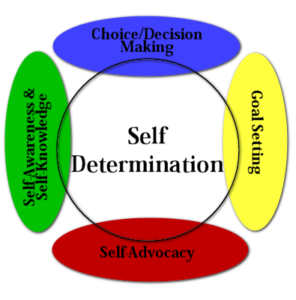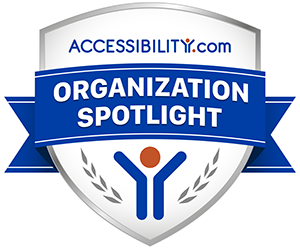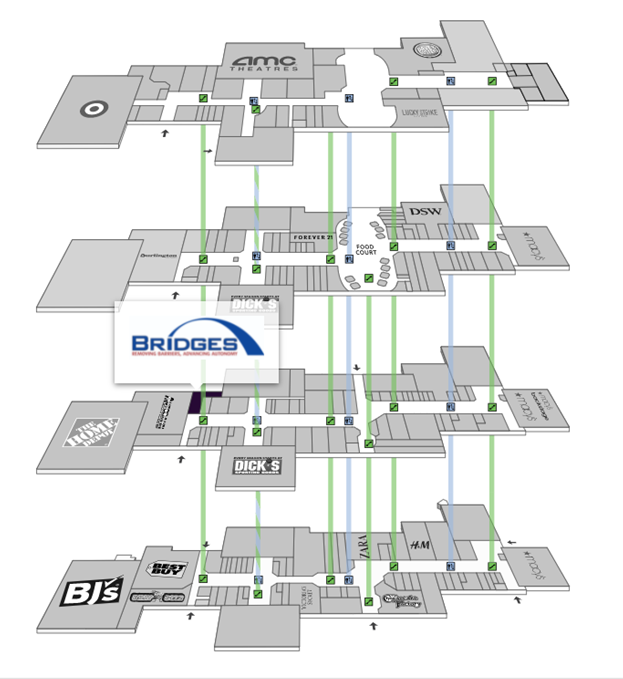
Self Determination
Self-Advocacy is about how individuals speak up for themselves. Self-Advocacy is learning how to speak up for yourself, making your own decisions about your own life, learning how to get information so that you can understand things that are of interest to you, finding out who will support you in your journey, knowing your rights and responsibilities, problem-solving, listening and learning, reaching out to others when you need help and friendship, and learning about self-determination.
Self-Advocacy helps people with disabilities to deal with stigmas and preconceived ideas people have about the disability community. Sometimes youth with disabilities struggle to speak up due to encountering prejudice while growing up, based on their disability. Youth with disabilities also may struggle with family patterns that make it difficult to find their voice. Sometimes family members, in an effort to help, can be over-protective, making it difficult for youth with disabilities to speak up. Youth with disabilities need to remember they do have a voice!
The more youth with disabilities work on their own voice, decide what they want, and decide how they think about life while they are transitioning to adulthood, the easier it will be. This can even be true for youth with significant disabilities who may have even more struggles with decision-making and self-determination. However, some youth with significant disabilities have the support needed for self-determination. People with significant disabilities’ needs and choices are just as valid and appreciated as those of every other person with a disability and without.
Self-Advocacy is not just speaking with our voices — a lot of times it is in our body language, actions, and attitude. People have to speak up when they are ready. To be ready during transition to adulthood, you need a plan. The plan involves family support, practicing self-advocacy skills on your own, and speaking up in the moment using manners and creating and respecting boundaries. It’s OK to take chances. Sometimes self-determination involves taking a risk. We can always change our plan or our approach.
Youth with disability have a voice, too, whether they express it like everyone else or they express it differently. Self-advocacy helps youth with disabilities to speak up for themselves.
When it comes to youth with disabilities speaking up, let’s help each other. People with disabilities are in this together as part of the disability community. In order for a person with a disability to get a seat at the table speaking up with everyone else, we must be willing to help each other. Self-advocacy can help people with disabilities to get a seat at the table. People with disabilities have a right to communicate about their disability so that decisions can be made based on the needs they express for the community.
Youth with disabilities who have a self-Advocacy plan get their voices heard. Everyone is included and everyone has a voice!




